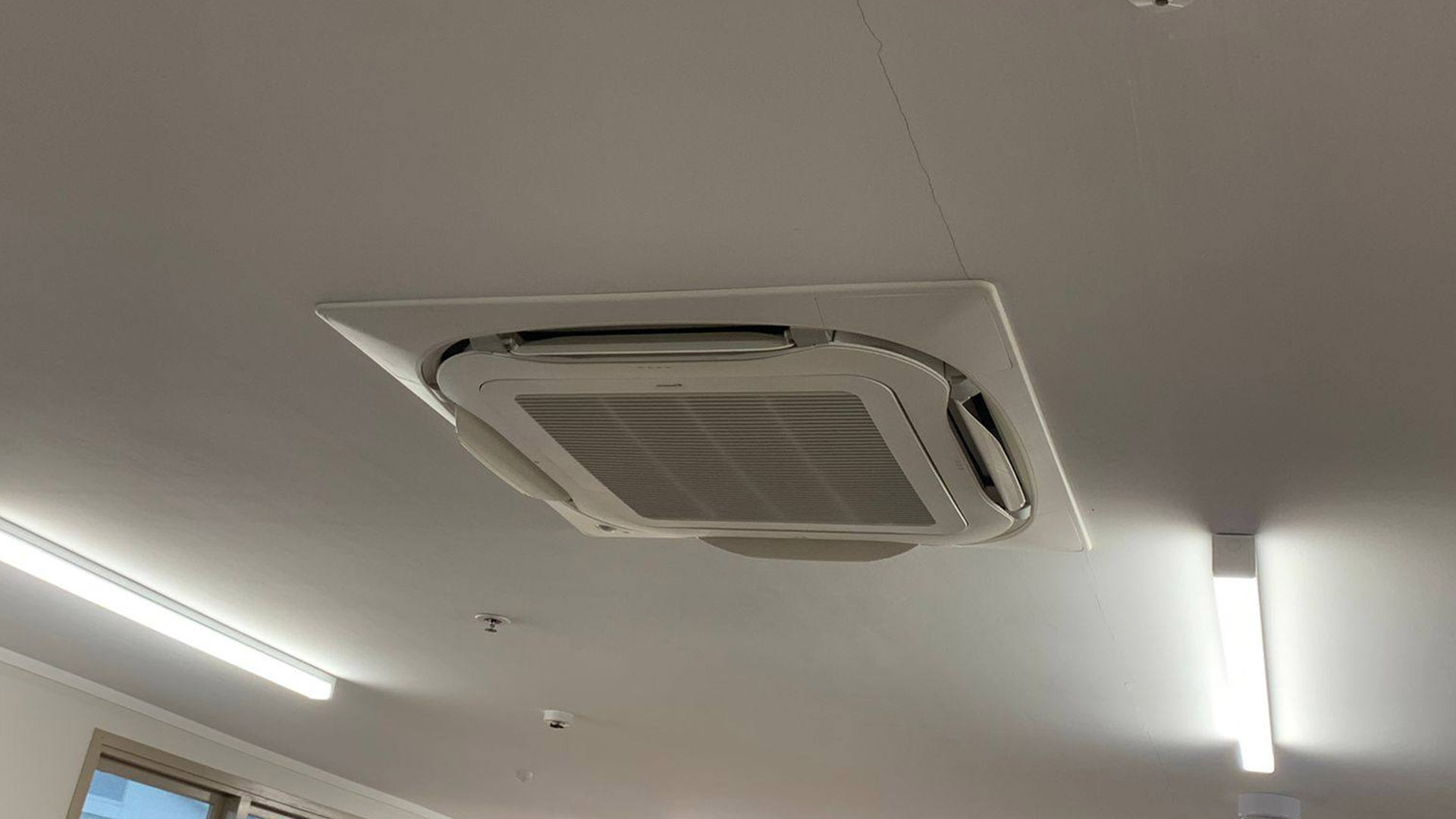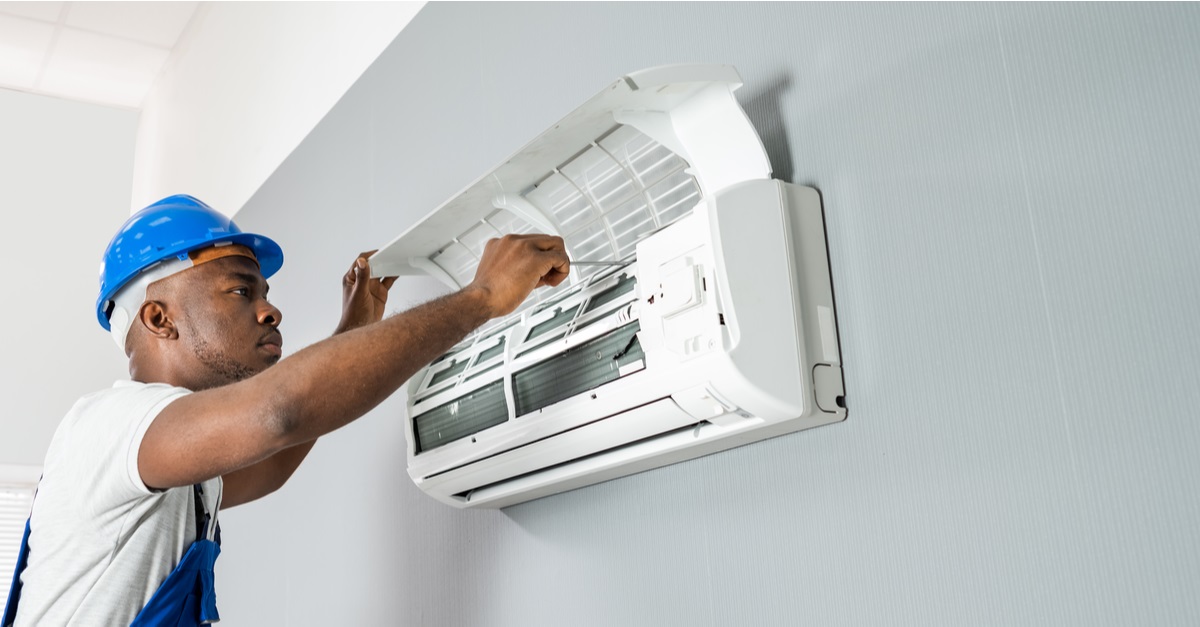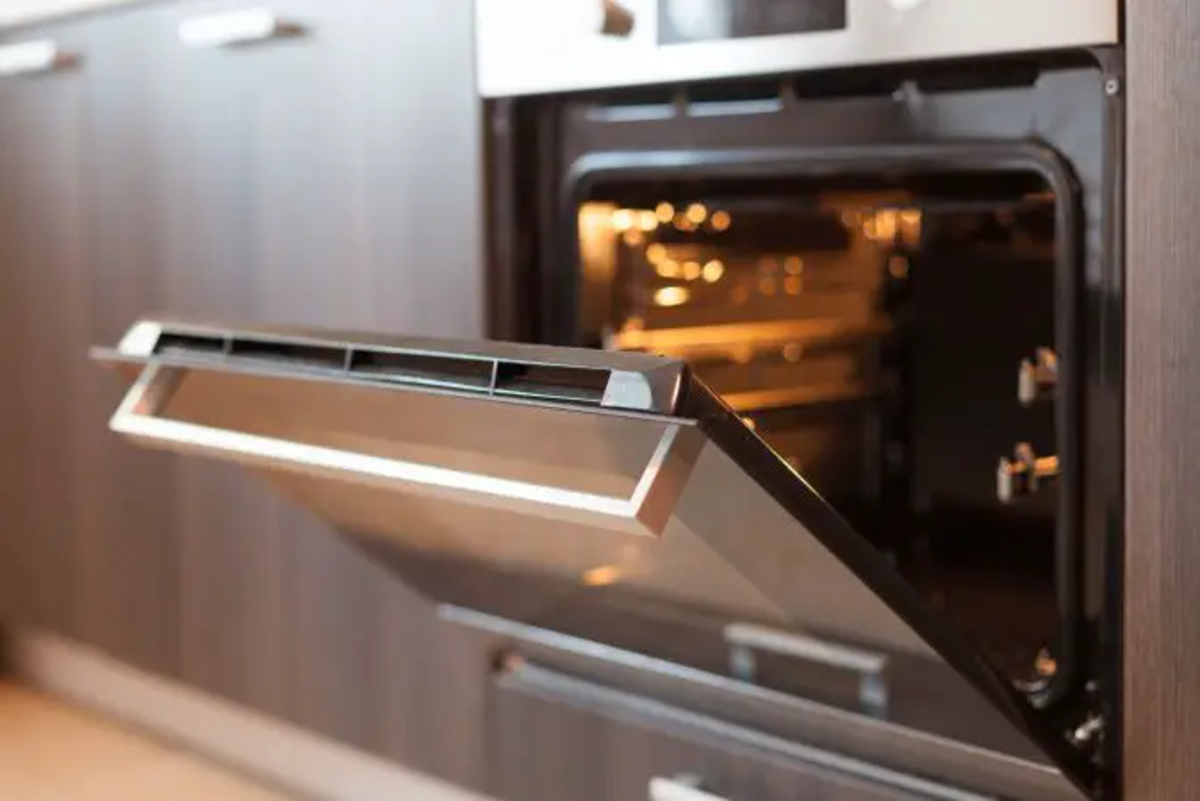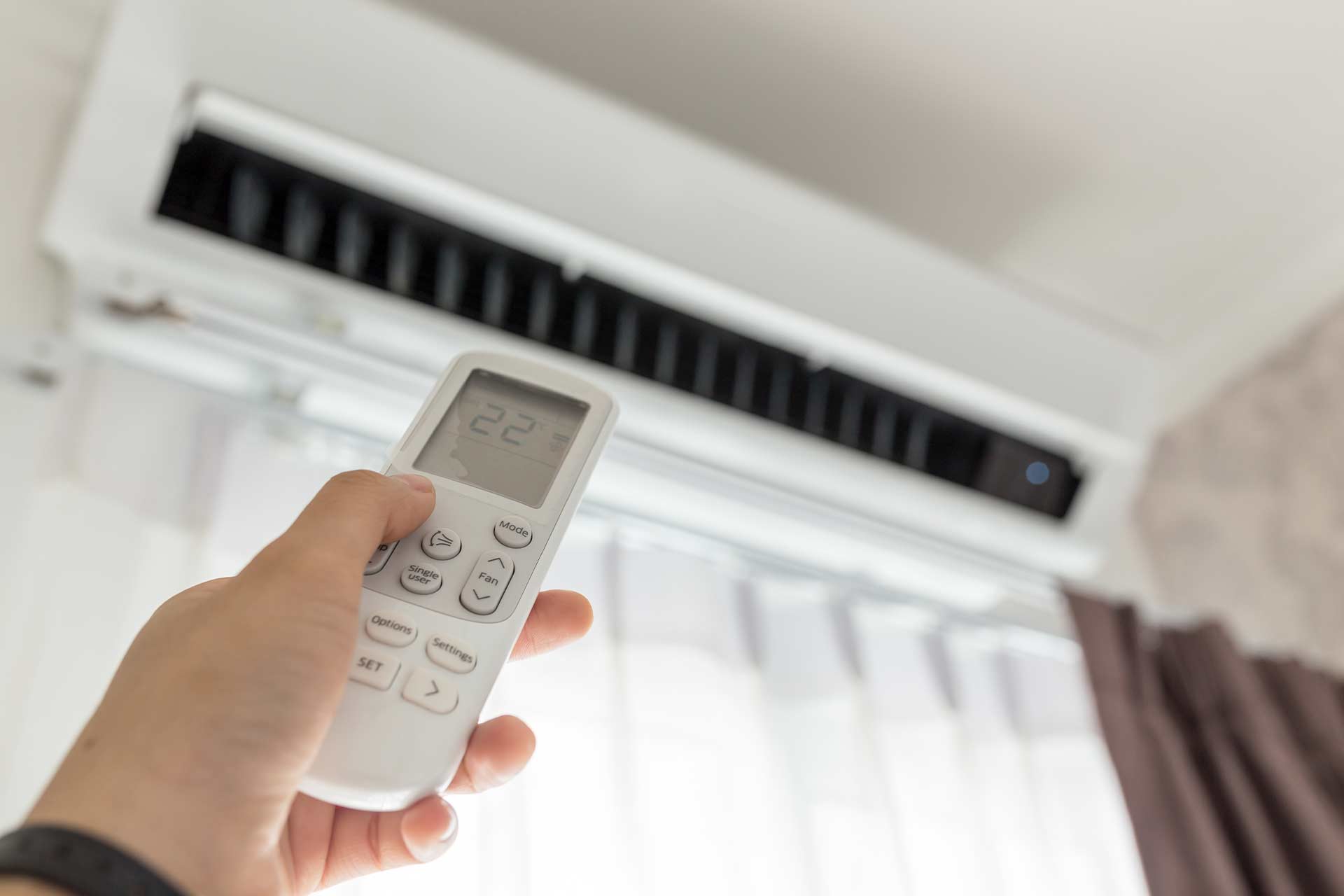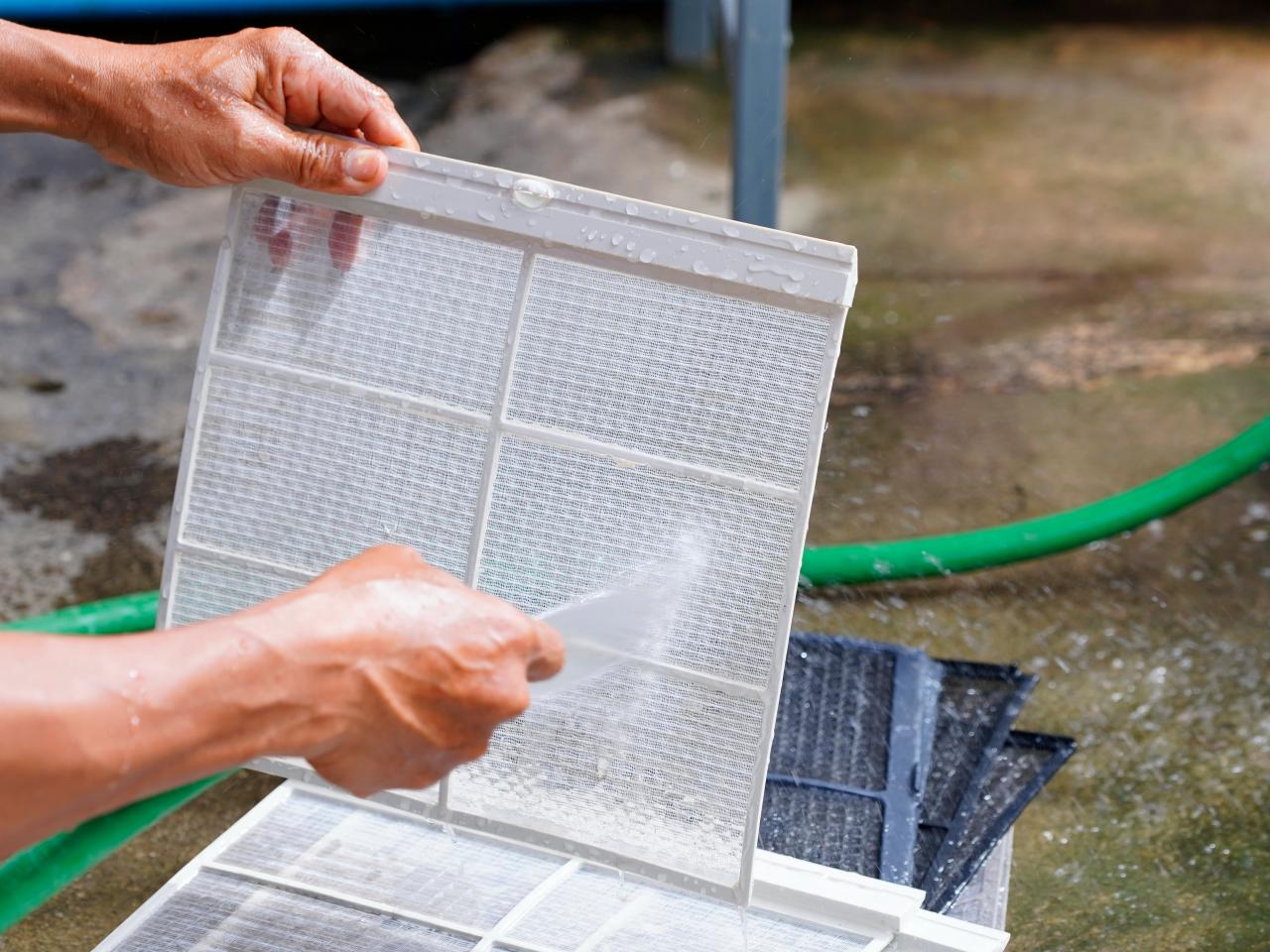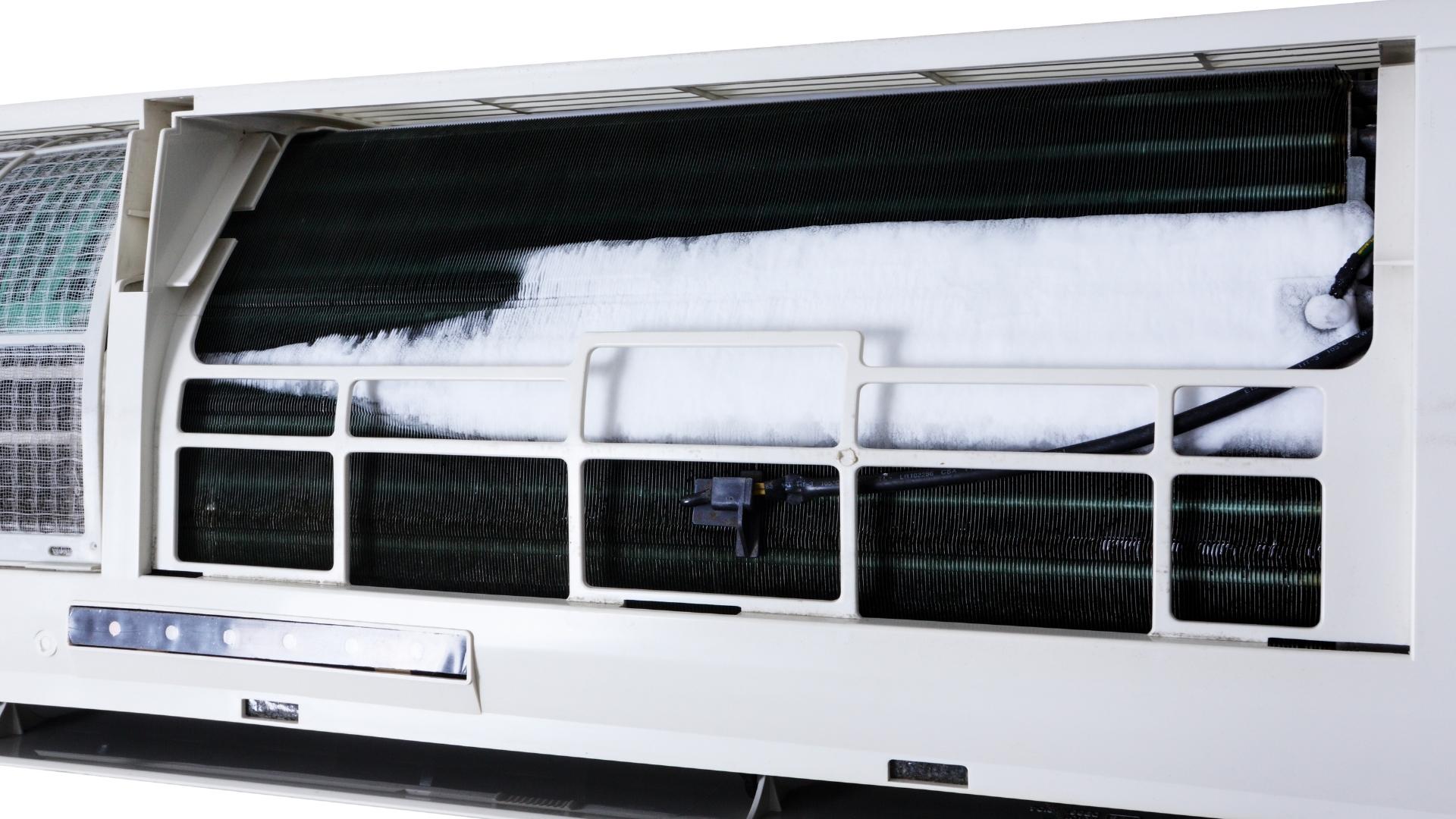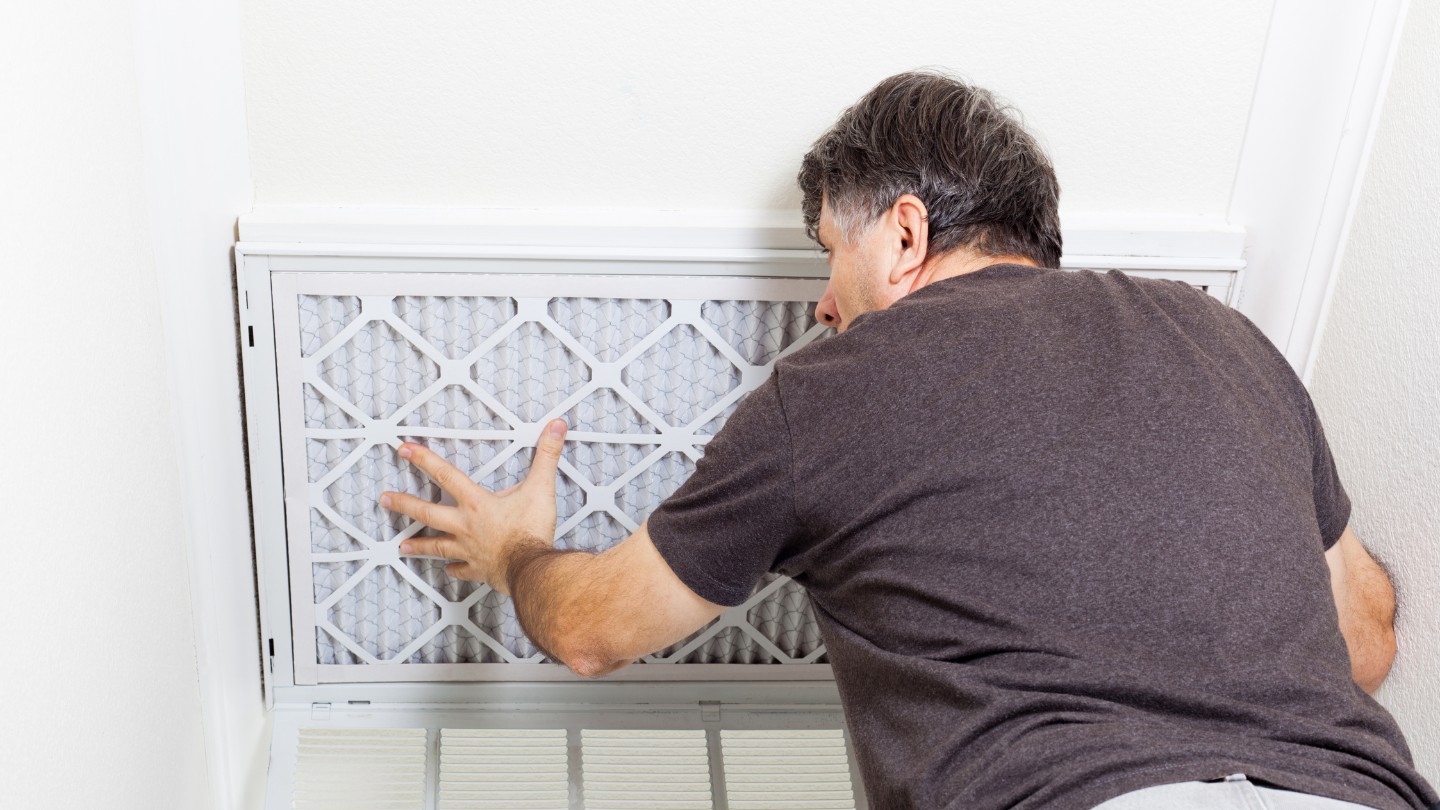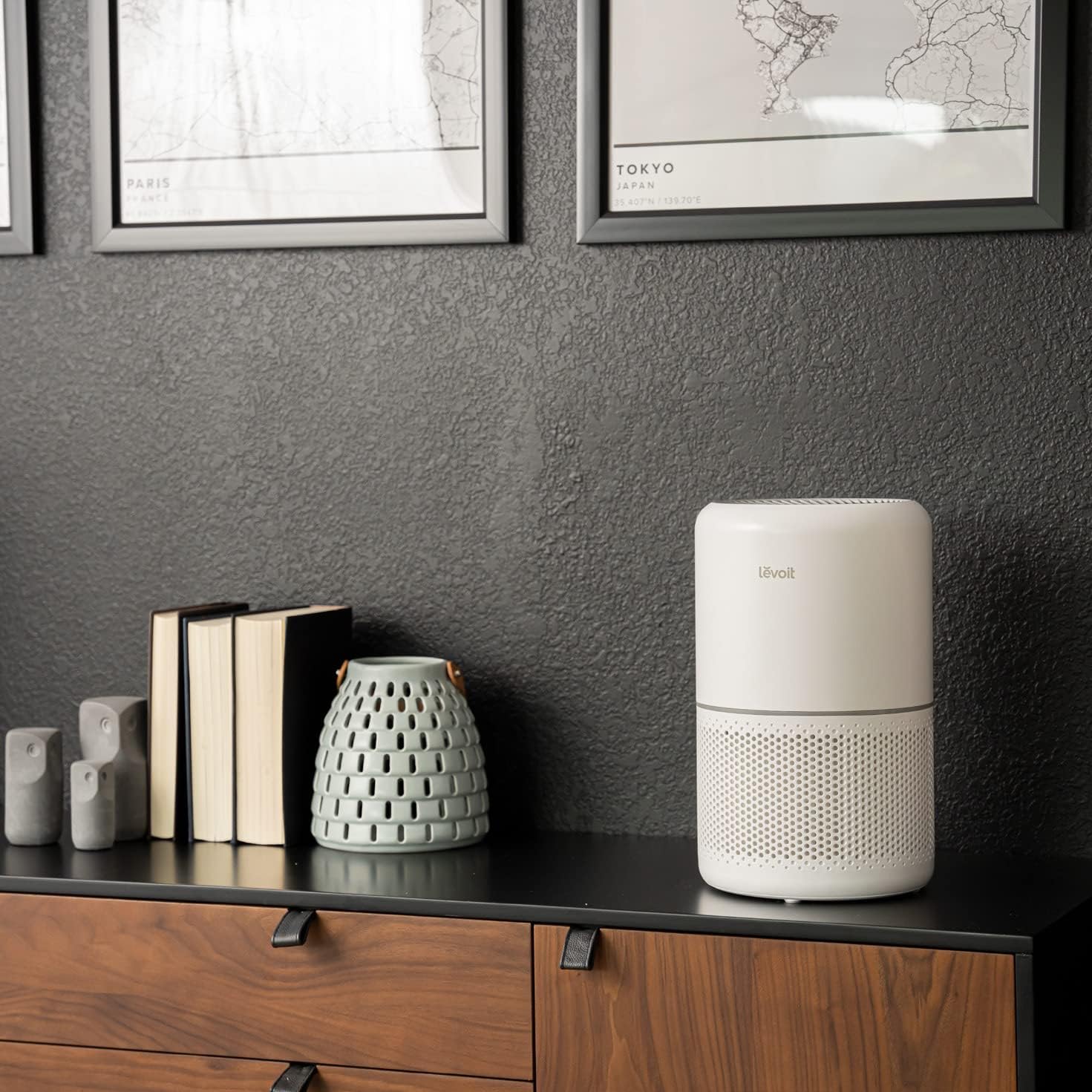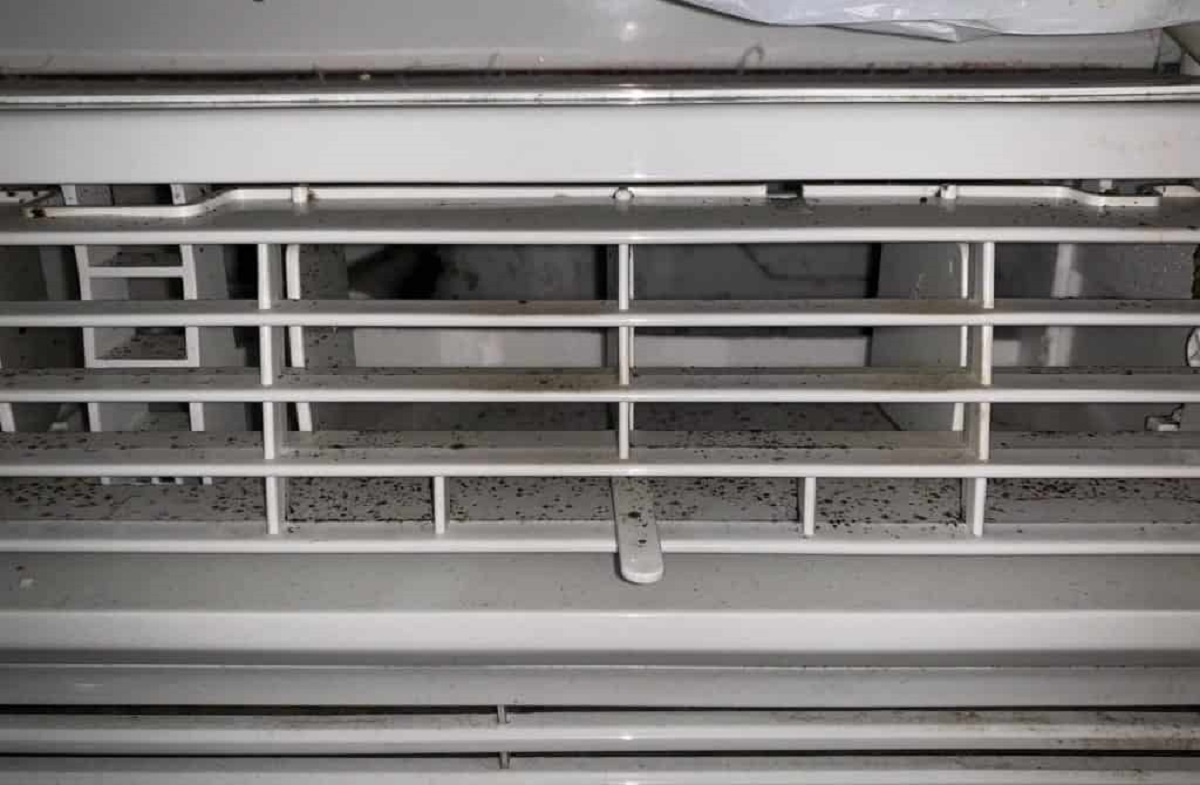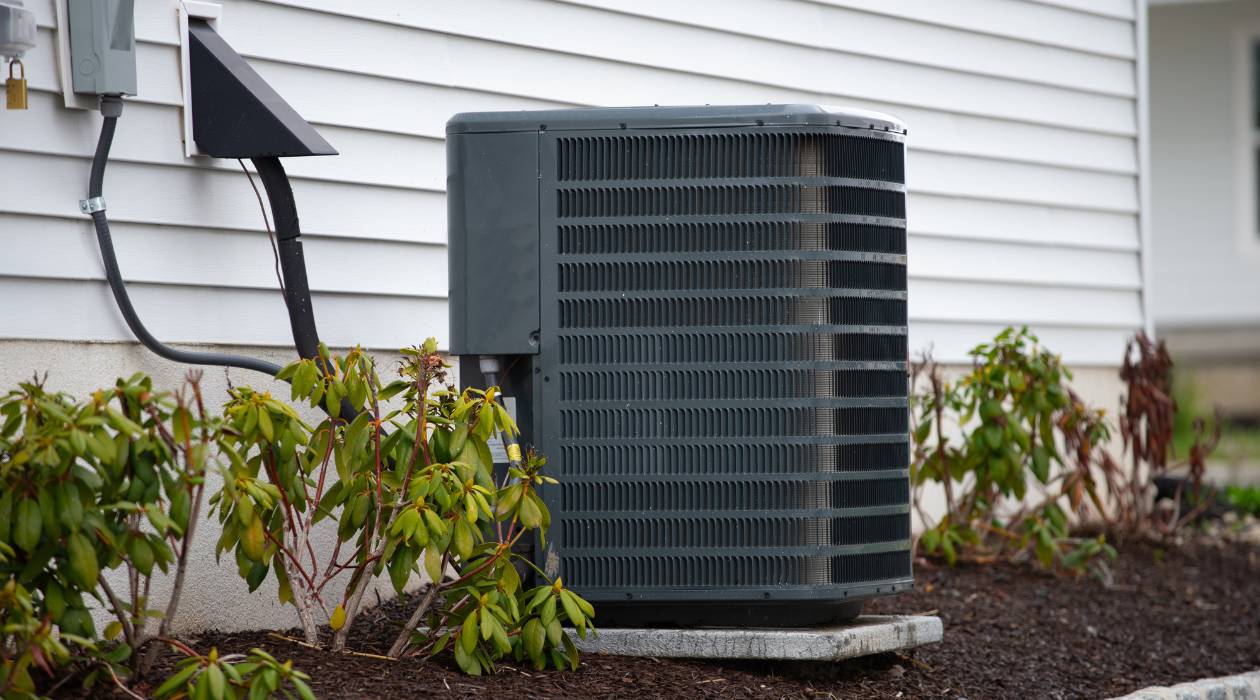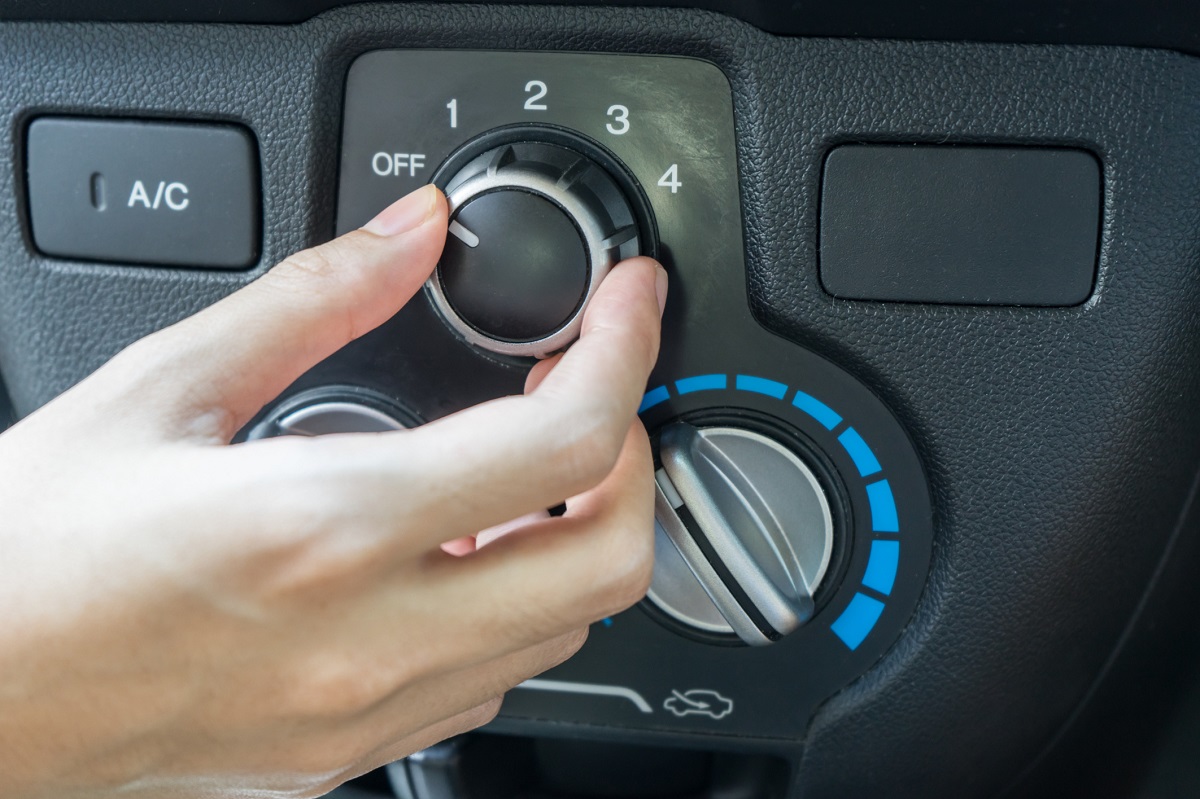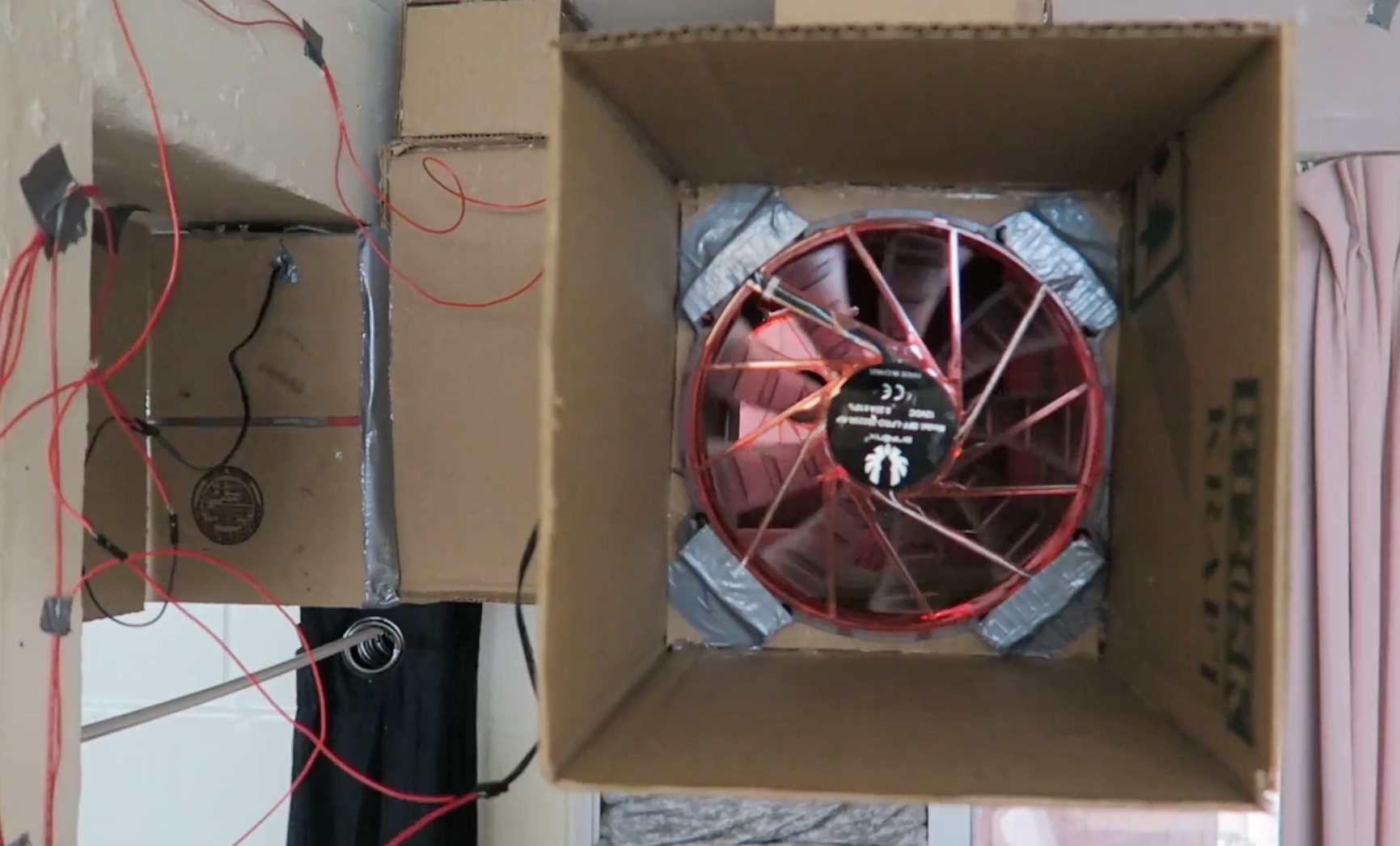Home>Home Maintenance>How Does AC Maintenance Improve Indoor Air Quality?


Home Maintenance
How Does AC Maintenance Improve Indoor Air Quality?
Modified: August 16, 2024
Learn how AC maintenance improves indoor air quality and creates a healthier living environment. Find out the importance of regular home maintenance for cleaner air.
(Many of the links in this article redirect to a specific reviewed product. Your purchase of these products through affiliate links helps to generate commission for Storables.com, at no extra cost. Learn more)
Introduction
Welcome to the world of home maintenance, where the well-being of your living space is in your hands. When it comes to keeping your home comfortable and healthy, one key aspect to consider is indoor air quality. The quality of the air we breathe indoors has a direct impact on our health, well-being, and overall quality of life.
In today’s fast-paced world, where people spend the majority of their time indoors, ensuring clean and fresh air is of utmost importance. However, achieving and maintaining good indoor air quality is not always as simple as opening a window or using air fresheners. This is where your trusty AC system comes into play.
While most people associate air conditioning with temperature control, it also plays a crucial role in improving indoor air quality. Your AC system is not only responsible for cooling your home but also for filtering and circulating the air. It acts as a powerful ally in removing pollutants, allergens, and other contaminants from your indoor environment.
In this article, we will explore the importance of indoor air quality and delve into how AC maintenance contributes to creating a clean and healthy living environment. So, let’s dive in and discover how the maintenance of your AC system can have a positive impact on the air you breathe inside your home.
Key Takeaways:
- Regular AC maintenance, including filter replacement and coil cleaning, improves indoor air quality by reducing allergens, preventing mold growth, and extending the lifespan of the AC system. Breathe cleaner, healthier air at home!
- Air quality testing provides personalized solutions to identify and address specific indoor air pollutants, protecting against health risks and ensuring a healthier living environment for you and your family. Prioritize indoor air quality for a healthier home!
Read more: The Best Indoor Plants For Air Purification
Importance of Indoor Air Quality
Indoor air quality (IAQ) refers to the quality of the air inside buildings, residences, offices, and other enclosed spaces. The significance of IAQ cannot be overstated, as it directly impacts our health, comfort, and productivity. Poor indoor air quality can lead to a variety of health issues, including respiratory problems, allergies, asthma, headaches, fatigue, and even more serious conditions in the long term.
Considering that the average person spends a significant amount of time indoors, whether it’s at home or in the workplace, it’s crucial to ensure that the air we breathe is clean and free from harmful pollutants. Unfortunately, indoor air can be up to five times more polluted than outdoor air, mainly due to various factors such as poor ventilation, inadequate filtration, and the presence of indoor air contaminants.
Indoor air pollutants can come from various sources, including dust, pet dander, pollen, mold spores, tobacco smoke, volatile organic compounds (VOCs) from cleaning products and furniture, as well as gases released by building materials. These contaminants can accumulate over time, leading to a deteriorating indoor environment that can compromise our well-being.
Exposure to poor indoor air quality can have both short-term and long-term effects on our health. In the short term, it can cause irritation of the eyes, nose, and throat, coughing, sneezing, and worsen existing respiratory conditions. Prolonged exposure to indoor air pollutants can contribute to the development of chronic respiratory diseases, cardiovascular issues, and even certain types of cancer.
Furthermore, indoor air quality also affects our comfort and productivity. Poor IAQ can cause discomfort, fatigue, difficulty concentrating, and decreased cognitive function, hindering our ability to perform optimally in both professional and personal settings. On the other hand, good IAQ promotes a healthy and conducive indoor environment, where we can breathe easily, think clearly, and be at our best.
Given the importance of indoor air quality for our health and well-being, it becomes evident why we need to take proactive measures to ensure that the air we breathe indoors is clean, fresh, and free from harmful pollutants. And one of the most effective ways to achieve this is by properly maintaining our AC systems.
Role of AC Systems in Indoor Air Quality
Your air conditioning (AC) system plays a vital role in maintaining good indoor air quality. It does much more than just cooling your home. AC systems are designed to filter and circulate the air, effectively removing pollutants, allergens, and other contaminants that can compromise the quality of indoor air.
An AC system consists of several key components that contribute to improving indoor air quality:
- Air Filter: The air filter is the first line of defense against airborne particles and pollutants. It traps dust, pollen, pet dander, mold spores, and other allergens, preventing them from circulating throughout your home. Keeping your air filter clean and regularly replacing it is essential for optimal performance and air quality.
- Ventilation: AC systems provide ventilation by exchanging indoor air with fresh outdoor air. This helps remove stale air, odors, and potentially hazardous gases that can build up indoors.
- Humidity Control: AC systems also help regulate indoor humidity levels. Excessive humidity can promote the growth of mold, mildew, and bacteria, leading to respiratory issues and worsening allergies. By removing excess moisture, AC systems create a drier environment that is less favorable for the proliferation of these harmful microorganisms.
- Filtration and Purification: Some AC systems are equipped with advanced filtration and purification technologies, such as HEPA filters or ultraviolet (UV) lamps. These additional features enhance the removal of even smaller particles, including bacteria, viruses, and volatile organic compounds (VOCs), further improving indoor air quality.
By continually filtering and circulating the air in your home, your AC system helps remove indoor air pollutants and maintain a clean and healthy environment. However, to ensure that your AC system performs optimally and effectively contributes to indoor air quality, regular maintenance is crucial.
In the next sections, we will explore the benefits of AC maintenance and the specific tasks that should be included in a comprehensive maintenance routine. By properly maintaining your AC system, you can enjoy improved indoor air quality and the associated health benefits for you and your family.
Common Indoor Air Pollutants
Indoor air pollutants are substances or pollutants that can negatively affect the quality of the air inside our homes. These pollutants can come from various sources, including outdoor air, building materials, cleaning products, furniture, and everyday activities. Being aware of these common indoor air pollutants can help you take necessary steps to minimize their presence and improve the air quality in your home.
Here are some of the most common indoor air pollutants:
- Dust and Allergens: Dust is a common household pollutant that contains a mixture of various particles, including skin flakes, pet dander, insect remains, and pollen. These allergens can trigger respiratory allergies and asthma symptoms.
- Mold and Mildew: Mold and mildew spores are commonly found in areas with high moisture levels, such as bathrooms and basements. Exposure to mold can cause respiratory issues, allergies, and even infections in susceptible individuals.
- Volatile Organic Compounds (VOCs): VOCs are emitted as gases from certain household products and building materials, including paint, varnishes, cleaning supplies, adhesives, and furniture. Prolonged exposure to VOCs can have detrimental effects on our health, including respiratory irritation and even long-term health issues.
- Tobacco Smoke: Smoking indoors releases a potent mix of harmful chemicals and toxins into the air. Secondhand smoke exposure can lead to a range of health issues, including respiratory problems and an increased risk of lung cancer and heart disease.
- Cooking Byproducts: Cooking activities can emit pollutants such as carbon monoxide, nitrogen dioxide, and various airborne particles. Poor ventilation during cooking can increase the concentration of these pollutants in the indoor air.
- Radon: Radon is a colorless and odorless gas that can seep into homes through cracks in the foundation or walls. Prolonged exposure to high levels of radon can increase the risk of lung cancer.
- Indoor Pesticides: The use of pesticides indoors can release harmful chemicals into the air. Prolonged exposure to these chemicals can lead to respiratory issues and other health problems.
These are just a few examples of the common indoor air pollutants that can impact the quality of the air in your home. By taking steps to reduce their presence and implementing proper AC maintenance, you can create a healthier indoor environment for you and your family.
Benefits of AC Maintenance for Indoor Air Quality
Regular maintenance of your air conditioning (AC) system is essential for maintaining good indoor air quality. By keeping your AC system in optimal condition, you can enjoy several benefits that contribute to a cleaner and healthier indoor environment. Here are the key advantages of AC maintenance for indoor air quality:
- Improved Air Filtration: One of the primary functions of your AC system is to filter the air. Regular maintenance ensures that the air filter is clean and functioning effectively, removing dust, allergens, and other particles from the air. This helps reduce indoor air pollutants and improves the overall air quality in your home.
- Reduced Allergens and Irritants: With proper AC maintenance, you can minimize the presence of allergens and irritants in your indoor air. Cleaning and replacing the air filter regularly helps capture pet dander, pollen, and mold spores, reducing the risk of allergies and respiratory issues.
- Prevention of Mold and Mildew: AC maintenance includes cleaning and inspecting the evaporator coil and the drain pan. These components can accumulate moisture, creating a breeding ground for mold and mildew. By keeping them clean and dry, you can prevent the growth of these harmful microorganisms and maintain a healthier indoor environment.
- Improved Energy Efficiency: Regular AC maintenance ensures that your system runs efficiently. When the AC system is dirty or not functioning properly, it has to work harder to cool your home, leading to increased energy consumption. By keeping all components clean and well-maintained, you can optimize energy efficiency, resulting in lower utility bills and a reduced environmental impact.
- Extended AC System Lifespan: Proper maintenance can extend the lifespan of your AC system. Regular cleaning and inspections help identify and address any issues before they become major problems. By proactively taking care of your AC system, you can avoid costly repairs or premature replacements, saving you money in the long run.
- Enhanced Comfort: A well-maintained AC system provides consistent and comfortable indoor temperatures. It helps regulate humidity levels and ensures proper airflow, creating a pleasant and comfortable living environment. Improved comfort leads to better sleep quality, increased productivity, and overall well-being.
By investing in regular AC maintenance, you can enjoy these benefits and ensure that your indoor air quality remains at its best. Remember, it’s not only about cooling your home, but also about creating a healthy and refreshing environment for you and your family to breathe and thrive in.
Regular Filter Replacement
One of the essential tasks for maintaining your air conditioning (AC) system and improving indoor air quality is regular filter replacement. The air filter in your AC system plays a crucial role in capturing dust, allergens, and other airborne particles, preventing them from circulating throughout your home. Over time, the air filter becomes dirty and clogged, reducing its effectiveness and putting a strain on the AC system. Regular filter replacement is important for several reasons:
- Improved Airflow: A clean air filter allows for proper airflow in your AC system. When the filter is clogged, it restricts the flow of air, making the system work harder to cool your home. This not only reduces overall cooling efficiency but also increases energy consumption and utility costs.
- Enhanced Filtration: A clean air filter is more efficient at capturing airborne particles, including dust, pet dander, pollen, and mold spores. Regular filter replacement ensures that the filter is capable of effectively removing these pollutants, improving the indoor air quality and reducing allergy symptoms for you and your family.
- Extended AC System Lifespan: The air filter acts as a barrier that prevents dust and debris from accumulating on the internal components of the AC system. When the filter is dirty, these particles can bypass the filter and settle on the evaporator coil, blower motor, and other parts. This buildup can cause damage and reduce the lifespan of your AC system. By replacing the air filter regularly, you can prevent this issue and prolong the life of your system.
- Reduced Energy Consumption: A clean air filter allows the AC system to operate more efficiently. When the filter is dirty, the system has to work harder to cool your home, consuming more energy in the process. By replacing the filter regularly, you can optimize energy efficiency, resulting in lower energy bills and a reduced environmental impact.
So, how often should you replace the air filter? It depends on various factors, such as the type of filter you have, the indoor air quality, and the usage of your AC system. As a general guideline, it is recommended to replace the air filter every 1 to 3 months. However, if you have pets, live in a dusty area, or have family members with allergies or respiratory conditions, you may need to replace the filter more frequently to maintain optimal indoor air quality.
Regular filter replacement is a simple yet impactful maintenance task that can significantly contribute to improving indoor air quality, enhancing the performance of your AC system, and keeping your home a clean and healthy environment for everyone.
Regular AC maintenance, including changing filters and cleaning coils, can improve indoor air quality by reducing the buildup of dust, allergens, and mold in the system. This helps to ensure that the air circulating in your home is clean and healthy to breathe.
Coil Cleaning
Another important task for maintaining your air conditioning (AC) system and improving indoor air quality is coil cleaning. The coils in your AC system, namely the evaporator coil and the condenser coil, play a critical role in the cooling process. Over time, these coils can become dirty, reducing the efficiency of your AC system and negatively impacting indoor air quality. Regular coil cleaning offers several benefits:
- Improved Cooling Efficiency: The coils in your AC system exchange heat and help cool the air. When they are covered in dirt, dust, and debris, it inhibits the heat transfer process and reduces the cooling capacity of the system. Cleaning the coils helps restore their efficiency, allowing the AC system to cool your home more effectively and efficiently.
- Prevention of Mold and Mildew: The evaporator coil in the indoor unit of your AC system is particularly prone to collecting moisture. This damp environment creates an ideal breeding ground for mold and mildew. These microorganisms can negatively impact indoor air quality and cause respiratory issues. Regular coil cleaning helps remove the moisture and potential for mold growth, promoting a healthier indoor environment.
- Reduced Energy Consumption: When the coils are dirty, the AC system has to work harder to cool your home. This increased workload translates into higher energy consumption and utility costs. By regularly cleaning the coils, you can improve the energy efficiency of your AC system, reducing electricity usage and saving money on your energy bills.
- Extended AC System Lifespan: Dirty coils can lead to various issues, including reduced cooling capacity, increased strain on the system, and potential compressor failure. Regular coil cleaning helps prevent these problems and extends the lifespan of your AC system. By keeping the coils clean, you can ensure that your system operates smoothly and reliably for years to come.
While cleaning the coil in the outdoor condenser unit is usually best left to a professional HVAC technician, you can easily clean the evaporator coil in the indoor unit yourself. Start by turning off the power to the AC system and removing the access panel to expose the coil. Gently brush away any loose debris using a soft brush. Then, use a coil cleaner specifically designed for evaporator coils, following the manufacturer’s instructions. Rinse with water to remove any remaining dirt and cleaner residue. Allow the coil to dry completely before reassembling the unit and turning the power back on.
Regular coil cleaning, along with other routine AC maintenance tasks, keeps your system running efficiently, prolongs its lifespan, and contributes to improved indoor air quality. By investing a little time and effort in maintaining your AC system, you can ensure a comfortable and healthy home environment for you and your family.
Drain Line Cleaning
Drain line cleaning is an important maintenance task to ensure the proper functioning of your air conditioning (AC) system and to maintain good indoor air quality. The drain line is responsible for removing the condensate, or water, that is generated during the cooling process. Over time, the drain line can become clogged with algae, mold, dirt, and other debris, leading to issues with your AC system and potentially compromising indoor air quality.
Regular drain line cleaning offers several benefits:
- Prevention of Water Damage: A clogged drain line can cause water to back up and overflow from the AC system, resulting in water damage to your home. By keeping the drain line clean, you can prevent this potential issue, avoiding costly repairs and maintaining a dry and safe living environment.
- Prevention of Mold and Bacterial Growth: When the drain line is clogged, stagnant water can accumulate. This stagnant water creates a conducive environment for the growth of mold and bacteria, which can lead to unpleasant odors and potentially impact indoor air quality. Regular cleaning of the drain line helps prevent the buildup of these harmful microorganisms, promoting a healthier indoor environment.
- Improved AC System Performance: A clogged drain line can cause the AC system to work harder to remove excess moisture, leading to decreased cooling efficiency and increased energy consumption. By cleaning the drain line, you can ensure optimal performance of your AC system, enhancing its cooling capacity and reducing unnecessary strain.
- Extended AC System Lifespan: Neglecting to clean the drain line can lead to long-term damage to your AC system, potentially resulting in costly repairs or even premature replacement. Regular drain line cleaning helps prevent such issues, extending the lifespan of your AC system and saving you money in the long run.
There are a few methods you can use to clean your AC drain line. One common method involves using a wet/dry vacuum to remove the blockage and debris from the drain line. You can also use a mixture of bleach and water to eliminate any algae or mold growth. It is important to refer to your AC system’s manual or consult a professional if you are unsure about the proper cleaning procedure for your specific system.
It’s important to note that if you prefer not to tackle drain line cleaning yourself, you can always hire a professional HVAC technician to perform this task as part of routine AC maintenance.
By regularly cleaning your AC drain line, you can prevent water damage, maintain a healthy indoor environment, and ensure the efficient operation and longevity of your AC system. Incorporating this task into your AC maintenance routine will help provide optimal cooling comfort and improve indoor air quality in your home.
Ductwork Inspection and Cleaning
Ductwork inspection and cleaning are crucial steps for maintaining good indoor air quality and optimizing the performance of your air conditioning (AC) system. The ductwork in your home is responsible for distributing cooled or heated air to different rooms. Over time, dust, debris, pet dander, and other contaminants can accumulate inside the ducts, potentially compromising indoor air quality and reducing the efficiency of your AC system.
Regular ductwork inspection and cleaning offer several benefits:
- Improved Indoor Air Quality: Dust, allergens, and pollutants inside the ductwork can circulate throughout your home every time the AC system is in operation. Regular duct cleaning helps remove these contaminants, improving indoor air quality and reducing the risk of respiratory issues, allergies, and other health problems.
- Enhanced Energy Efficiency: When the ducts are clogged with dust and debris, it restricts airflow, forcing the AC system to work harder to cool or heat your home. This increased workload leads to higher energy consumption and higher utility bills. Cleaning the ductwork improves airflow, optimizing energy efficiency, and potentially reducing your energy costs.
- Elimination of Odors: Over time, unpleasant odors can accumulate in the ductwork, coming from pet dander, cooking, cleaning products, or other sources. Duct cleaning helps remove these odors, ensuring a fresh and clean-smelling indoor environment.
- Identification of Issues: During a ductwork inspection, any potential issues with the duct system can be identified. This includes leaks, loose connections, or damaged ducts. Addressing these issues promptly can prevent further damage to the system and maintain optimal performance.
While it is possible to clean the ducts yourself, it is recommended to hire a professional HVAC technician for a thorough inspection and cleaning. They have the knowledge, tools, and expertise to ensure effective and safe duct cleaning. A typical duct cleaning process includes the following steps:
- Inspection: The technician will assess the condition of your ductwork, looking for any signs of damage, leaks, or blockages.
- Cleaning: Using specialized tools and equipment, the technician will remove dust, debris, and contaminants from the ducts. They may use brushes, vacuums, or compressed air to dislodge and extract the buildup.
- Sanitization: To further improve indoor air quality, the technician may sanitize the ductwork to kill any remaining bacteria or mold spores.
- Sealing and Repair: If any issues are discovered during the inspection, the technician can seal leaks or perform necessary repairs to ensure optimal duct performance.
Regular ductwork inspection and cleaning are recommended every 3 to 5 years, or more frequently if you have pets, allergies, or notice a significant accumulation of dust and debris. By investing in professional duct cleaning, you can enjoy improved indoor air quality, better energy efficiency, and a healthier living environment for you and your family.
Seal and Insulation Checks
As part of maintaining your air conditioning (AC) system and ensuring optimal indoor air quality, it is important to regularly inspect the seals and insulation in your home. The seals around windows, doors, and ductwork, as well as the insulation in walls, ceilings, and floors, play a crucial role in preventing air leaks and maintaining a comfortable indoor environment. Checking the seals and insulation offers several benefits:
- Energy Efficiency: Proper seals and insulation help prevent air leaks, reducing the amount of conditioned air that escapes from your home. This ensures more efficient operation of your AC system, leading to lower energy consumption and reduced utility costs. Checking and maintaining seals and insulation can help maximize energy efficiency in your home.
- Temperature Control: Seals and insulation create a barrier between the outside environment and the inside of your home. Properly sealed windows and doors, along with well-insulated walls and ceilings, help maintain a consistent indoor temperature by preventing drafts and heat transfer. This results in a more comfortable living environment and reduces the workload on your AC system.
- Improved Indoor Air Quality: Air leaks in your home not only affect temperature control but can also contribute to poor indoor air quality. Leaks can allow outdoor pollutants and allergens to enter your home while allowing conditioned air to escape. By checking and sealing any gaps or cracks, you can prevent the ingress of contaminants and maintain cleaner and healthier indoor air.
- Moisture Control: Proper seals and insulation also play a role in preventing moisture buildup in your home. Moisture infiltration can lead to mold and mildew growth, which can impact indoor air quality. By inspecting and maintaining seals and insulation, you can minimize the risk of moisture-related issues and maintain a dry and healthy living environment.
To check the seals in your home, carefully inspect the areas around windows, doors, and ductwork. Look for cracks, gaps, or signs of wear and tear. Seal any noticeable gaps or cracks with caulk, weatherstripping, or foam insulation. Ensure that windows and doors are properly closed and sealed when not in use to prevent air leakage.
For insulation checks, start by examining the insulation in your attic, crawlspaces, and walls. Look for any damaged or missing insulation and address it promptly. Additionally, ensure that insulation is properly installed and has the appropriate R-value for your climate. Hiring a professional insulation contractor can provide a thorough inspection and assessment of your home’s insulation needs.
By regularly inspecting and maintaining the seals and insulation in your home, you can enhance energy efficiency, improve temperature control, promote better indoor air quality, and prevent moisture-related issues. These simple steps contribute to a more comfortable and healthier living environment while also benefiting the performance of your AC system.
Air Quality Testing
While regular maintenance and cleaning of your air conditioning (AC) system can go a long way in improving indoor air quality, there may be instances where you want a more comprehensive assessment of the air you breathe. This is where air quality testing comes into play. Air quality testing involves evaluating the concentration of pollutants and contaminants in your indoor air to determine its overall quality.
Here are the key benefits and considerations of air quality testing:
- Identifying Specific Pollutants: Air quality testing can help pinpoint the presence of specific pollutants in your indoor air. This includes volatile organic compounds (VOCs), mold spores, pollen, particulate matter, and other allergens. By identifying these pollutants, you can take targeted measures to reduce their impact on your health and improve the air quality in your home.
- Personalized Solutions: The results of air quality testing can provide insights into the unique characteristics of your indoor environment. With this information, you can develop a personalized plan to address any air quality issues. This may involve adjusting ventilation, installing air purifiers or filters, or implementing other measures based on the specific pollutants found in your home.
- Baseline Assessment: Air quality testing can serve as a baseline assessment, especially if you have made recent changes to your living space or have concerns about potential sources of pollutants. By establishing a baseline, you can monitor changes in air quality over time and evaluate the effectiveness of any implemented interventions.
- Protection Against Health Risks: Testing the air quality in your home can help protect you and your family from potential health risks associated with poor indoor air quality. Exposure to high levels of pollutants and allergens can lead to respiratory problems, allergies, asthma, and other health issues. Air quality testing helps identify these risks and allows for appropriate actions to be taken to mitigate them.
- Professional Expertise: Air quality testing is often conducted by professionals who use specialized equipment to measure pollutant levels. These professionals have the knowledge and expertise to accurately assess and interpret the results, ensuring that you receive reliable and valuable information about your indoor air quality.
When considering air quality testing, it’s essential to choose a reputable and qualified professional or agency. They will conduct a thorough assessment and provide you with a comprehensive report detailing the findings and recommendations for improving your indoor air quality, if necessary.
It’s important to note that air quality testing is not always necessary for every home. If you already practice good maintenance and have taken measures to improve indoor air quality, testing may not be required. However, if you have specific concerns or symptoms related to poor air quality, or if you want a thorough evaluation of your indoor environment, air quality testing can provide you with valuable insights and peace of mind.
By combining the information obtained from air quality testing with regular AC maintenance and other measures to improve indoor air quality, you can create a healthier and more comfortable living space for you and your family.
Conclusion
Ensuring good indoor air quality is essential for maintaining a healthy and comfortable living environment. Your air conditioning (AC) system plays a significant role in improving indoor air quality by filtering and circulating the air in your home. By implementing regular AC maintenance tasks, you can enhance the performance of your system and create a cleaner and healthier indoor environment for you and your family.
Throughout this article, we’ve explored the importance of indoor air quality and how AC maintenance contributes to its improvement. We’ve discussed common indoor air pollutants that can affect your health and well-being. We’ve also highlighted the benefits of tasks such as regular filter replacement, coil cleaning, drain line cleaning, ductwork inspection and cleaning, seal and insulation checks, and air quality testing.
Regular filter replacement ensures proper airflow and effective filtration of airborne particles, reducing allergens and improving the overall air quality in your home. Coil cleaning helps maintain cooling efficiency, prevents mold growth, and extends the lifespan of your AC system. Drain line cleaning prevents water damage and mold growth, promoting a healthier indoor environment. Ductwork inspection and cleaning remove dust, allergens, and contaminants, improving airflow and reducing the risk of respiratory issues. Seal and insulation checks enhance energy efficiency, temperature control, moisture control, and indoor air quality. Air quality testing provides a comprehensive assessment of pollutants in your indoor air, allowing for personalized interventions to protect your health.
In conclusion, by prioritizing AC maintenance and incorporating these tasks into your regular home maintenance routine, you can ensure that your AC system operates efficiently, your indoor air quality remains optimal, and your home provides a safe and pleasant living environment for you and your loved ones.
Remember, it’s not only about temperature control; it’s about creating a clean, healthy, and comfortable space where you can thrive. Take the necessary steps to improve indoor air quality, and enjoy the benefits of breathing fresh and clean air in your home.
Frequently Asked Questions about How Does AC Maintenance Improve Indoor Air Quality?
Was this page helpful?
At Storables.com, we guarantee accurate and reliable information. Our content, validated by Expert Board Contributors, is crafted following stringent Editorial Policies. We're committed to providing you with well-researched, expert-backed insights for all your informational needs.
